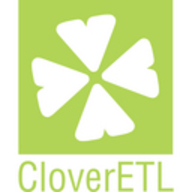

Teradata and CloverETL compete in the data management solutions category. Teradata stands out in scalability and query performance, while CloverETL has the advantage in flexible data transformation.
Features: Teradata offers robust analytics capabilities, large-scale data handling, and strong support for enterprise-level operations. CloverETL provides integration flexibility, custom transformations, and suitable solutions for complex ETL processes.
Ease of Deployment and Customer Service: Teradata involves a complex deployment process given its comprehensive solutions, making it suitable for large enterprises. CloverETL offers a more straightforward deployment, catering to smaller teams with responsive customer service.
Pricing and ROI: Teradata typically requires a larger upfront investment but potentially delivers higher long-term ROI for large data-driven enterprises. CloverETL is a cost-effective option for smaller to mid-sized organizations looking for a quicker return on investment without extensive initial costs.
| Product | Market Share (%) |
|---|---|
| Teradata | 0.8% |
| CloverETL | 0.5% |
| Other | 98.7% |

| Company Size | Count |
|---|---|
| Small Business | 26 |
| Midsize Enterprise | 12 |
| Large Enterprise | 49 |
Teradata is a powerful tool for handling substantial data volumes with its parallel processing architecture, supporting both cloud and on-premise environments efficiently. It offers impressive capabilities for fast query processing, data integration, and real-time reporting, making it suitable for diverse industrial applications.
Known for its robust parallel processing capabilities, Teradata effectively manages large datasets and provides adaptable deployment across cloud and on-premise setups. It enhances performance and scalability with features like advanced query tuning, workload management, and strong security. Users appreciate its ease of use and automation features which support real-time data reporting. The optimizer and intelligent partitioning help improve query speed and efficiency, while multi-temperature data management optimizes data handling.
What are the key features of Teradata?In the finance, retail, and government sectors, Teradata is employed for data warehousing, business intelligence, and analytical processing. It handles vast datasets for activities like customer behavior modeling and enterprise data integration. Supporting efficient reporting and analytics, Teradata enhances data storage and processing, whether deployed on-premise or on cloud platforms.
We monitor all Data Integration reviews to prevent fraudulent reviews and keep review quality high. We do not post reviews by company employees or direct competitors. We validate each review for authenticity via cross-reference with LinkedIn, and personal follow-up with the reviewer when necessary.